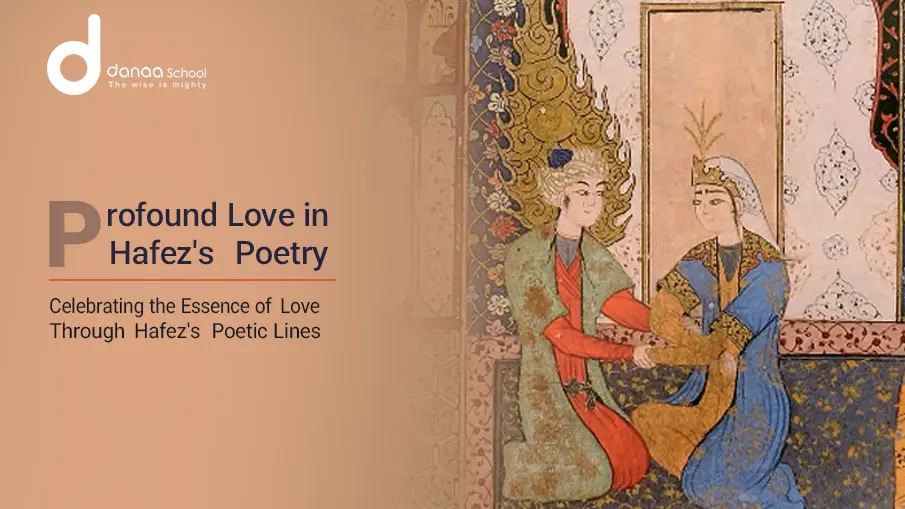The Best Hafez Poems: Timeless Persian Poetry and Meaning
Hafez, the celebrated Persian poet, has a way with words that transcends time, language, and culture. His poetry—rich with mysticism, love, and wisdom—continues to inspire readers centuries after it was written. In this article, we explore the best Hafez poems and uncover why the poetry of Hafez remains so deeply loved around the world.
Who Was Hafez?
Born in Shiraz, Iran, in the early 14th century, Hafez (Khwāja Shams-ud-Dīn Muḥammad Ḥāfeẓ-e Shīrāzī) is one of the most influential poets in Persian literature. His title, “Hafez,” means “the memorizer,” reflecting his deep knowledge of the Quran.
Hafez’s poems—mostly written in the ghazal form—blend earthly love with divine longing, irony with devotion, and joy with spiritual depth. His verses are famously multilayered, allowing readers to find personal meaning in each reading.
Read more: Who is Hafez Shirazi?
The Magic of Hafez’s Poetry
The poetry of Hafez is not meant to be read only once. It invites reflection, interpretation, and emotional connection. Below are some of the most well-known and beloved Hafez poems and themes.
1. The Divan of Hafez
The Divan of Hafez is his most famous work and a cornerstone of Persian literature. It is still found in many Iranian homes and is often used for Fal-e Hafez (poetic divination).
Key themes: Divine and earthly love, spiritual insight, self-awareness, and the nature of truth.
Notable lines:
“Even after all this time
The sun never says to the earth, ‘You owe me.’
Look what happens with a love like that—
It lights the whole sky.”
2. Against the Reckless Pursuit
In this poem, Hafez cautions against the blind pursuit of power, wealth, and status. He encourages inner peace, humility, and spiritual balance instead of external validation.
Key themes: Simplicity, contentment, and spiritual awakening.
Notable lines:
“Do not chase what is fleeting and false;
Seek the truth that lives within.”
3. The Cupbearer
The cupbearer is one of Hafez’s most powerful symbols. Wine, in his poetry, often represents divine love and spiritual ecstasy rather than literal intoxication.
Key themes: Mystical union, divine love, transcendence.
Notable lines:
“Bring the wine that sets the soul ablaze,
Let us dance in the light of love divine.”
4. My Heart Aches
This poem expresses the soul’s pain of separation from the beloved—whether human or divine. It reflects a central Sufi idea: longing is the path to union.
Key themes: Yearning, separation, devotion.
Notable lines:
“My heart aches, O beloved unseen,
For a love too deep, yet far between.”
5. The Mirror of the Heart
Hafez often describes the heart as a mirror that must be polished to reflect divine truth. This poem focuses on inner purification and self-awareness.
Key themes: Self-discovery, inner clarity, spiritual truth.
Notable lines:
“Polish the mirror of your heart,
Until divine light is clearly shown.”
6. The Rose and the Nightingale
The rose and the nightingale are classic symbols in Persian poetry. The nightingale’s devotion to the rose represents the soul’s longing for divine beauty.
Key themes: Love, beauty, sacrifice.
Notable lines:
“The nightingale sings for the rose alone,
A love the heart has always known.”
Why Hafez’s Poetry Endures
Universal Themes
Love, longing, faith, doubt, joy, and meaning—Hafez writes about experiences shared by all humans, across cultures and centuries.
Rich Symbolism
Wine, gardens, mirrors, and beloveds carry multiple meanings, making each poem endlessly interpretable.
Lyrical Beauty
The musical rhythm of Hafez’s ghazals gives his poetry a timeless elegance that continues to captivate readers and listeners.
Explore Persian Literature with Danaa School
If you are inspired by the wisdom of Hafez, Danaa School offers courses in Persian language, literature, and poetry. Learn how to read and understand Hafez in the original Persian, and discover the cultural context behind his timeless verses.
Visit Danaa School and begin your journey into the world of Persian poetry.
FAQs
What is the most famous poem by Hafez?
Many poems from the Divan of Hafez are famous, especially those used in Fal-e Hafez. Popular themes include love, fate, and divine wisdom.
Why is Hafez so important in Persian culture?
Hafez is quoted in daily life, read during celebrations like Yalda Night, and consulted for guidance through Fal-e Hafez.
Can beginners read Hafez?
Yes. English translations are a great starting point, and learning basic Persian can deepen understanding.
What is Hafez's most famous work?
Hafez’s most famous work is “The Divan of Hafez,” a collection of his poems that include his renowned ghazals on love, spirituality, and nature.
What themes are commonly found in Hafez's poetry?
Hafez’s poetry often explores themes such as love, divine connection, longing, and the search for spiritual truth.
How can I understand the symbolism in Hafez's poems?
Understanding the symbolism in Hafez’s poems can be enriched by learning about Persian culture, Sufi mysticism, and the historical context of his work. Courses like those offered by Danaa School can provide deeper insights.
Where can I read Hafez's poetry?
You can find translations of Hafez’s poetry in many bookstores and online. Websites dedicated to Persian literature and online academic resources also offer access to his work.
Conclusion
Hafez’s poetry offers a gateway into a world where the divine and the earthly intertwine in a dance of words. His ability to capture the essence of love, spirituality, and human longing ensures that his poems remain relevant and moving, centuries after they were written.
Explore his works and embrace the timeless wisdom they offer. And remember, if you’re keen to delve deeper into Persian literature, Danaa School provides the perfect place to start your literary journey. Embrace the rich legacy of Hafez and let his verses illuminate your path.










